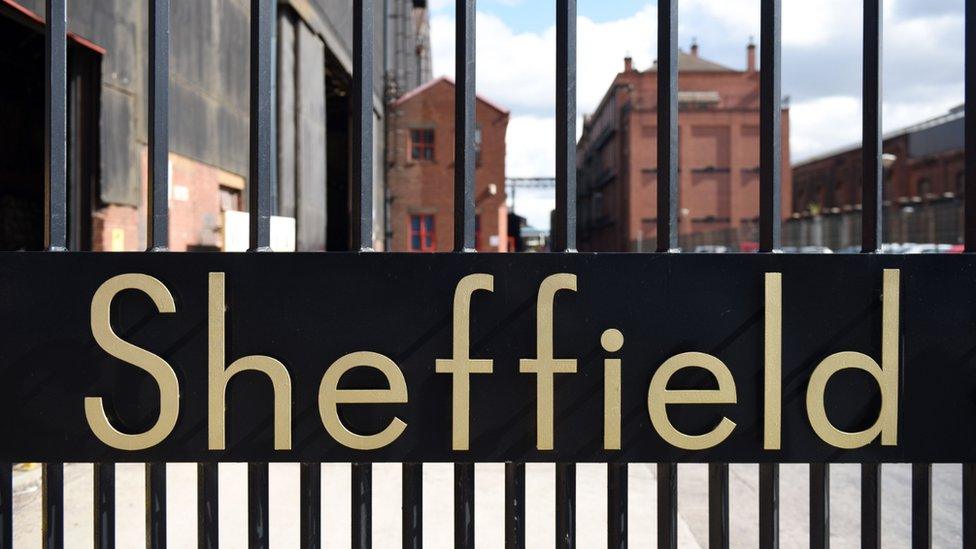Where has Yorkshire's decade of devolution left us?
- Published
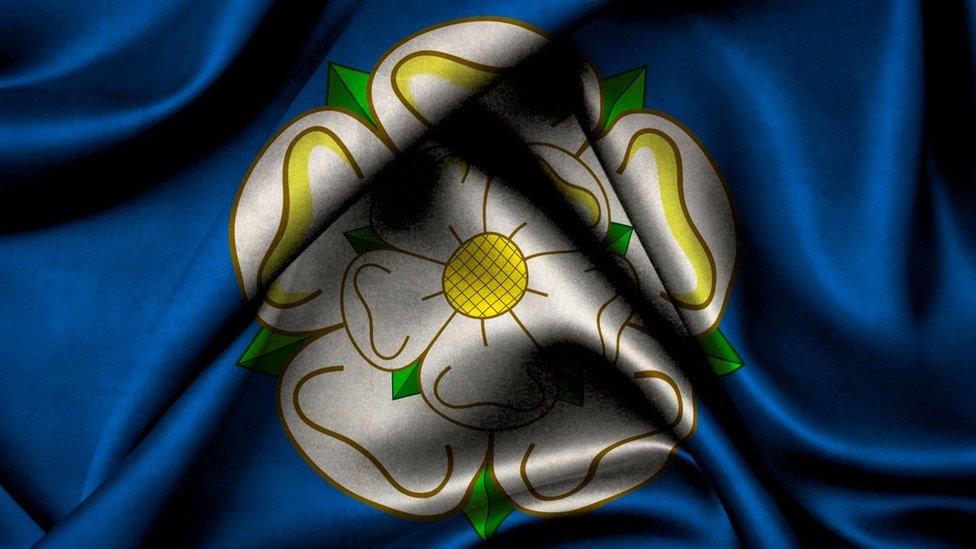
Yorkshire's history with devolution dates back to 2014
As people across North, South and West Yorkshire prepare to go to the ballot box, BBC Yorkshire Political Editor James Vincent takes a look back at the history of the region's Metro mayors.
In under a week, three parts of Yorkshire will have a mayor.
The Mayor of North Yorkshire and York will be the latest new addition to the Mayoral sticker book - if Panini want to take me up on the idea just let me know.
The vote on 2 May is the biggest ever devolved election in England, with half of the country's population soon to be covered by a mayor.
But does the system work? And will Yorkshire get more powers? I've been speaking to people who, like me, have been talking about devolution for more than 10 years.
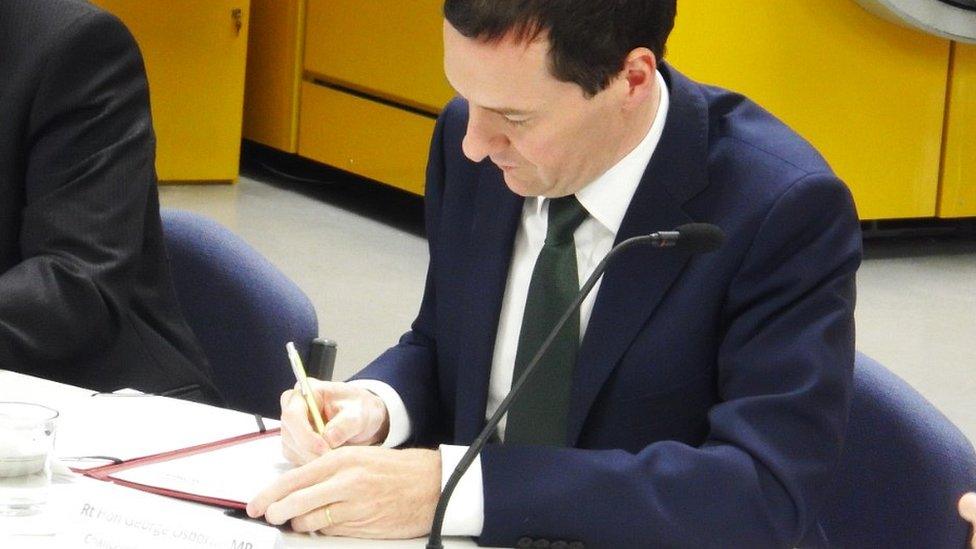
George Osborne signed the deal at the University of Sheffield's Advanced Manufacturing Research Centre
Yorkshire took its first steps towards devolution back in 2014 with the creation of the combined authorities in West Yorkshire and South Yorkshire.
But it was October 2015 before the then Chancellor George Osborne signed a deal with leaders of South Yorkshire councils, paving the way for the region's first directly-elected mayor.
That itself took more than four years - and a fair few arguments - to come into force properly.
While South Yorkshire chose its first mayor - Dan Jarvis - in 2018, he wouldn't get his hands on any power or cash until 2020 due to the in fighting.
And though the council leaders were more than occupied with the idea the local electorate wasn't. Turnout in Doncaster was just 20%.
Mr Jarvis who was both Barnsley MP and Mayor of South Yorkshire, found the jobshare neither easy nor sustainable and stood down in 2022.
Despite its turbulent start, devolution in Yorkshire was finally up and running.
For many in the early days it was more a case of looking over the Pennines to see what they had got and South Yorkshire hadn't.
Manchester was buying trams, Liverpool was buying ferries, while South Yorkshire couldn't even think about it yet.
Someone there at the time described it as "extremely frustrating".
"Forget the cliché about trying to do a job with one hand tied behind your back, it was having both arms and both legs tied," they told me.

Who said what
If you would like to know more about what the candidates in your area had to say ahead of the election, click here for our coverage of the BBC's mayoral debates in As it happened: West Yorkshire mayoral debate, As it happened: North Yorkshire mayoral debate and As it happened: South Yorkshire mayoral debate

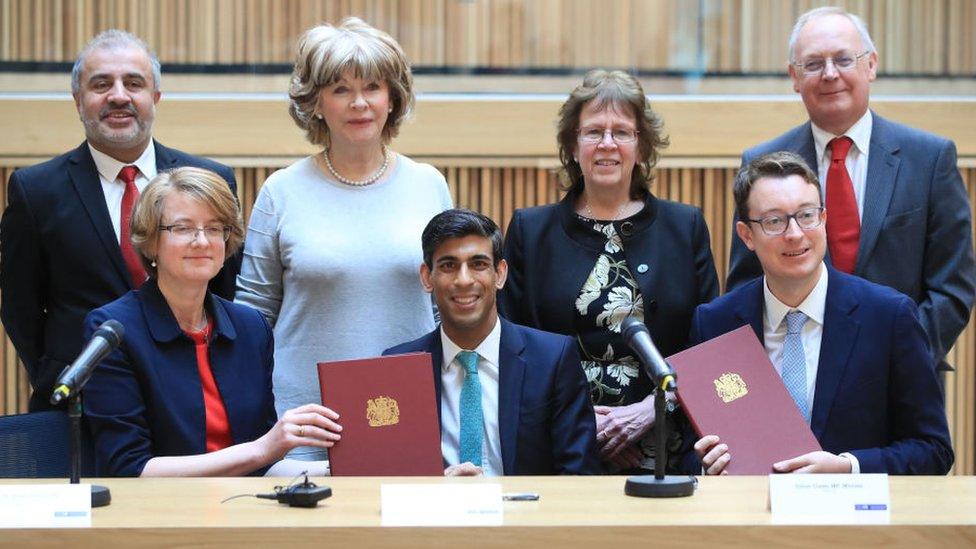
Rishi Sunak was the chancellor who signed over devolved power to West Yorkshire
West Yorkshire also had a rocky road to a mayor, with its various councils pushing for different deals, all involving different parts of the white rose.
The idea to have a pan-regional mayor covering the whole of Yorkshire was popular with some, but the government didn't like it.
Part of the problem was the fact discussions were being had about deals that weren't actually being offered, getting a deal sorted from the government and on the table was key.
Another person behind the scenes in those negotiations told me the main obstacle to a deal being done was "no-one could agree where the boundary should be".
"When you even have to negotiate over the name of the deal - West Yorkshire/Leeds City Region/something else - you know you've got challenges," they said.
"But, once the government made it clear there was a deal to be done for West Yorkshire it was impossible to turn down as the alternative was falling further behind Manchester and Birmingham."
The discussions among councils and Whitehall set West Yorkshire back, finally signing a deal with the Chancellor - by now Rishi Sunak - in March 2020.
I remember being there as Mr Sunak came down the stairs with a gaggle of council leaders at the Nexus building in Leeds, ready to sign the papers. It was the last press call I went to before the pandemic.
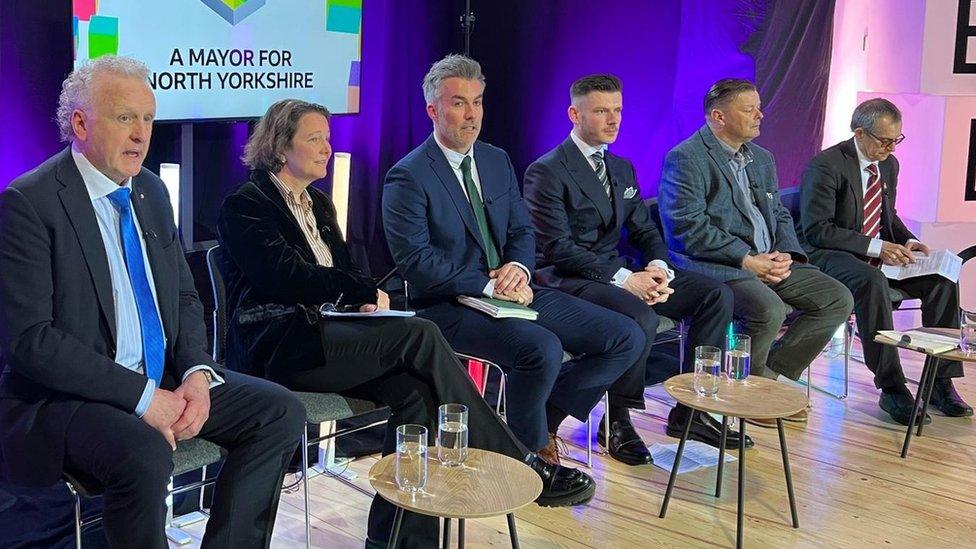
Six candidates will battle it out to become the first mayor of York and North Yorkshire
Now North Yorkshire will complete the set. And this will be a fascinating experiment to see what the public think of the idea of a mayor nearly ten years on.
There are no other local elections in North Yorkshire this year. Turnout will solely be for a new elected mayor. What will people do?
The only comparable election might be the by-election for a North Yorkshire Police Commissioner in November 2021 - where only 13% people turned up.
Andrew Carter from the think tank Centre for Cities thinks people are warming to the idea of an elected individual.
"I think the metro mayors have proven successful in actually connecting to their to their local populations," he said.
"I think they are a good idea. You can see in the way that the public have engaged with the metro mayors, [it] gives us a sense that they are doing something that is cutting through, particularly, I think, at a time where trust, appetite and engagement with politics can be somewhat difficult."
For Akash Paun from The Institute for Government it's also about the figurehead role mayors can provide.
"I think one of the big benefits for places that that have got an elected mayor is that they have that high profile, powerful advocate, who can negotiate and make the case for more investment into the region," he told me.
"In talks with central government, but also with the private sector, you know a mayor is much better placed than a council leader to pick up the phone to a government minister or to the CEO of a big company and really advocate for the things that their region needs."
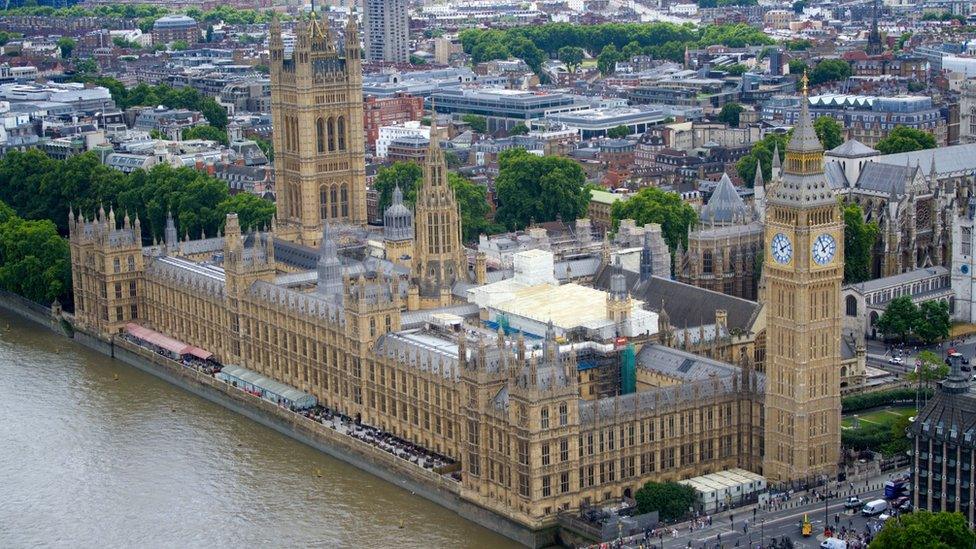
Full devolution from Westminster is a long way off, according to Akash Paun from the Institute of Government
So could mayors end up replacing councils, or even MPs?
Centre for Cities has surveyed places that have had a mayor for a few years. That survey suggested that people do recognise them more than other politicians.
Andrew Carter says it might mean they will end up getting more powers.
"They are being recognised by the public, which I think is a good thing," he said.
"An important milestone is 50% of the population will be covered by metro mayors this year. The experiment's beginning to work. Now is the time to double down."
South Yorkshire and West Yorkshire were told in the budget this year they will move to a bigger devolution deal, with more control - but still not as much as Manchester and the West Midlands are getting.
But, how far away are we from Yorkshire making all of its decisions independently of Westminster?
Akash Paun says that's probably not going to happen any time soon.
"I think we've made a lot more progress, even in the past five, 10 years, than I would have thought possible in terms of devolving," he said.
"But that said, we are a long way off from a federal model. For a start, 50% of the country still has no devolution deal at all. So there's a big job to be done."
So, after a decade of toing, froing, arguing and finally signing devolution deals, Yorkshire will soon have three mayors.
The discussions will continue about the extension of powers, whether the system works and what the end point of devolution will look like.
But, perhaps the biggest challenge is to get people just to notice one of the most significant things to ever happen in local democracy.

Follow BBC Yorkshire on Facebook, external, X (formerly Twitter), external and Instagram, external. Send your story ideas to yorkslincs.news@bbc.co.uk, external
Related topics
- Published1 August 2022
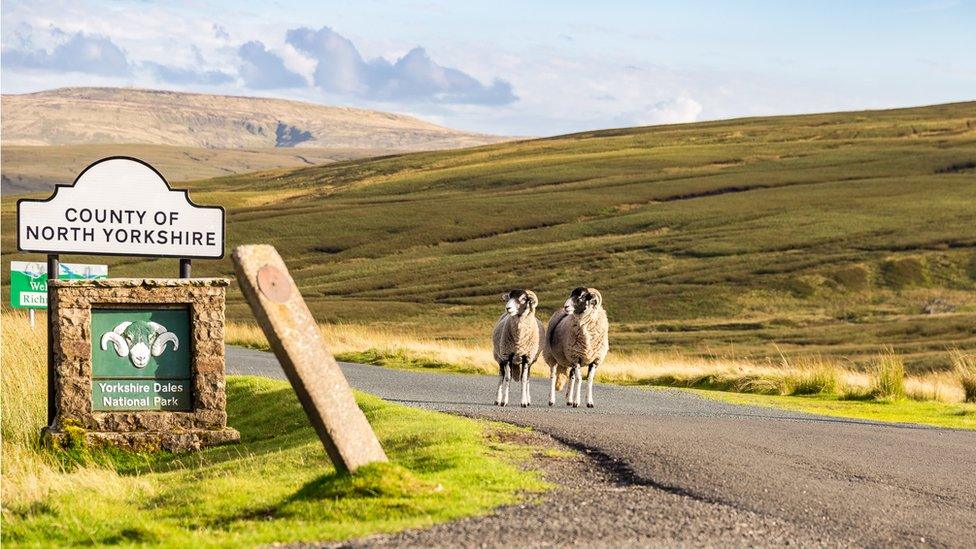
- Published11 March 2020
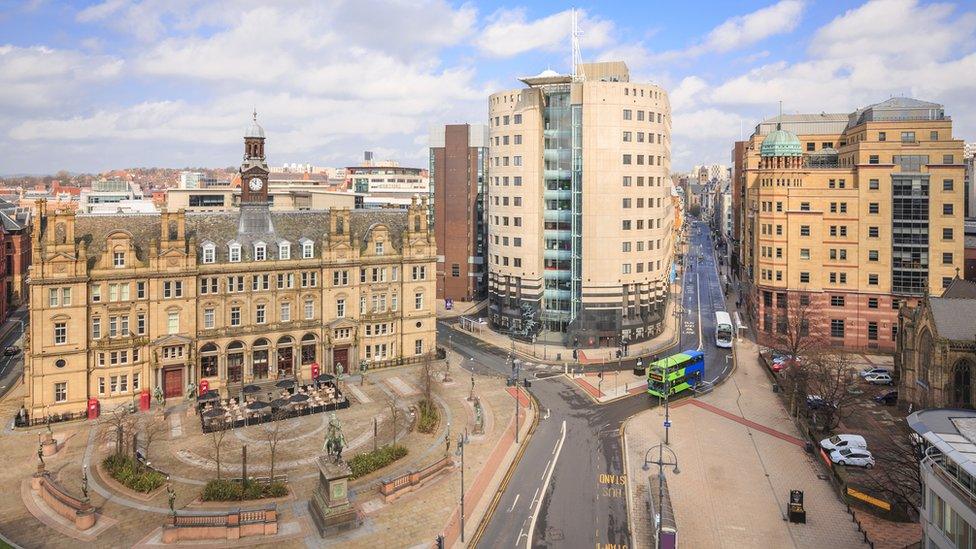
- Published16 January 2020
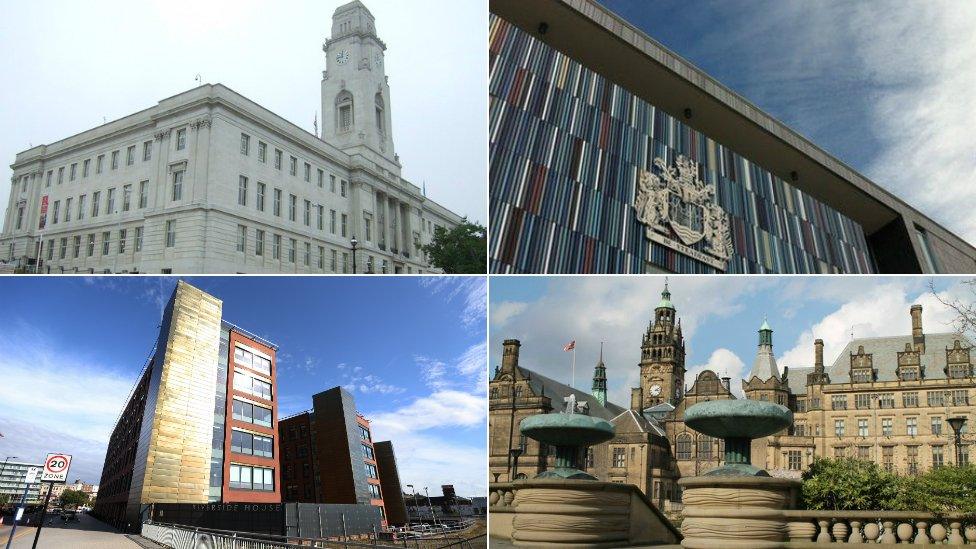
- Published2 October 2015
